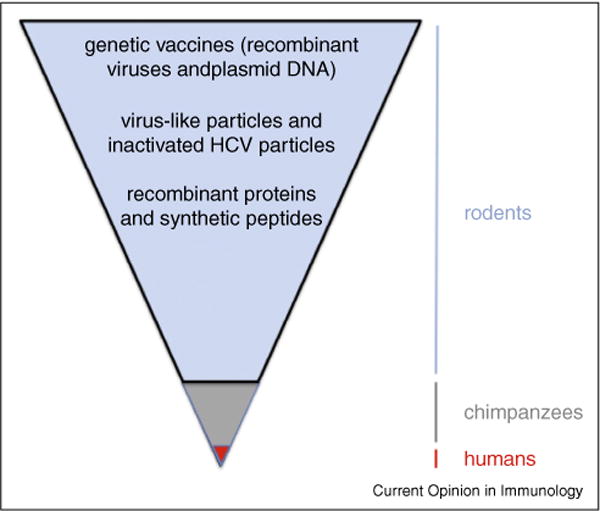Figure 1.

Bottlenecks in HCV vaccine development. HCV was discovered approximately 25 years ago when there was rapid progress in understanding pathways of antigen processing and presentation, as well as development of recombinant proteins and vectors as vaccines. These advances provided a rich pipeline of ideas for strategies to vaccinate against HCV. Many candidate vaccines were tested for immunogenicity in rodents or other species not susceptible to HCV infection. Very few vaccines were assessed for protection of chimpanzees, the only immunocompetent animal model for human HCV infection. Approximately half of chimpanzees infected with HCV resolve the infection spontaneously. Because chimpanzee vaccine studies necessarily involve very few individuals, it is difficult to detect an increased frequency of resolved infections compared to mock vaccinated controls. The lack of a more tractable animal model is a significant bottleneck in vaccine development. To date, only two vaccine approaches have been assessed for immunogenicity in humans. The difficulty in designing phase II and III human vaccine studies in populations who are at risk for infection, with protection from persistence rather than protection as an endpoint, is also a barrier to progress.
